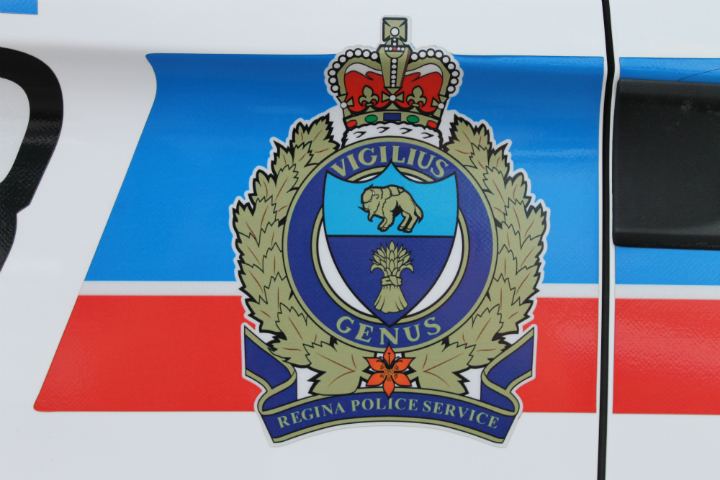The Regina Police Service (RPS) is introducing a new communication card to help officers communicate during traffic stops with people who suffer from hearing loss or lack skills in speaking English.

The communication cards, developed in partnership with Saskatchewan Deaf and Hard of Hearing Services and the Regina Open Door Society, feature simple icons and phrases to assist both officers and members of the public who are deaf or hard of hearing or whose preferred language is not English.
“Getting stopped by police is kind of stressful … but when there is a communication barrier, it is even more stressful,” said RPS spokesperson Lindsey Hoemsen.
Several years ago, Mustafa Alabssi had a frustrating encounter with an officer during a traffic stop. His experience is the reason for the launch of the communication card initiative.
Alabssi was 19 at the time and a student at Winston Knoll Collegiate. He remembers driving to go pick up his girlfriend for dinner. He sat in his car waiting and noticed a kid all alone playing on a hill. Alabssi decided to share a candy bar with the kid and hollered for the youngster’s attention. The kid ran away. Alabssi forgot about it and continued to wait for his girlfriend.
The next thing he saw were cop lights behind him.

Get daily National news
“I felt stuck, and I didn’t know what to do,” Alabssi told Global News through an interpreter. “The cop peeked over in my window, and I pointed at my ear (but) the cop continued to talk… My girlfriend ran out of the house finally and said, ‘he is deaf,’ and all the cops looked over in shock.”
Alabssi said the police apologized and Alabssi’s girlfriend signed to him to get the story of why he thinks police might have pulled him over. When she heard his reasoning, she said it was a misunderstanding.
“If my girlfriend wasn’t there, and I was alone, what would have I done?” Alabssi said, using sign language.
The following day, he informed his teacher who got in touch with Const. Erin Black to discuss ways to improve communications.
“When I heard that this had happened, it’s upsetting to have that kind of personalized experience brought to me,” Black said.
The idea for the communications card was adopted from Edmonton Police Service.
Narin Gillies, executive director for the SDHHS, said incidents like Alabssi’s are a huge concern all over the world.
“Coming up with a solution like this… is really the right way to do it,” he said.
The communications card will be available at RPS headquarters, at satellite offices or online. Police officers will also carry them.








Comments